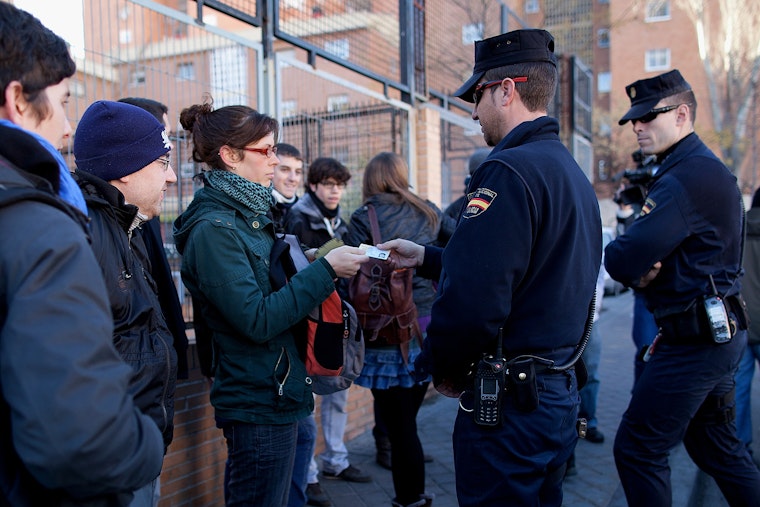Q&A: How a System to Document Police Stops Improved Policing in Fuenlabrada, Spain

Every day, around the world, police conduct stops and identity checks for a variety of reasons. These stops—which are one of the primary ways in which officers come into contact with the public—may lead to a search and even arrest of the person stopped. That’s why it’s crucial to ensure that they are effective and fair, and that ethnic minorities are not disproportionately targeted.
Data collection can assist in providing accountability and identifying problems. This month, the Open Society Justice Initiative released two new reports providing guidance on methods of data collection and stop data analysis. Open Society Justice Initiative’s Rebekah Delsol spoke with police inspector and criminal justice expert David Martín Abánades on his insights around the implementation of a new system to collect data on police stops in Fuenlabrada, Spain.
How can stop data collection help police departments reduce the practice of ethnic profiling?
You need to know what it happening in your police service to be able to find solutions. Only if you have data about the profile of the stops, will know whether your police service are doing ethnic profiling, and whether the stops can be justified or not. Secondly, when police officers know that police stop data is being collected and analysed, this has an impact on their self-control. This automatically makes them more considered in their actions, which is important given the impact of stops.
Tell us about the initiative you supported in Fuenlabrada, Spain.
What improvements did you see?
The Police Management Team’s recognition of the issues was an important starting point for change in the police service. Police officers became more aware of ethnic profiling and of how minority groups felt after being stopped by police. It also shed light on the prejudices and stereotypes of the police and how to address it in a better way. The use of [a paper form issued during the stop] ensured that citizens were informed of the reasons for the stop and there was evidence to determine whether the police officer was justified in his or her action. Talking to communities about ethnic profiling can mark the beginning of a better relationship between police and minorities. Acknowledging the issue has supported increased communication and improved mutual knowledge and cooperation.
Did you face any resistance to the initiative, and how did you overcome it?
Yes, I did. Police officers felt that the [use of a paper form] and the data collection was meant to supervise work, and they felt attacked and accused of racism. At the beginning, there was a lot of resistance from the entire police force. Another point of resistance was its rejection by the unions. Most of them thought that police ID checks were being properly done. If there were no complaints being made about police stops, why had we decided to implement the stop and search form and data analysis?
The main ways we overcame the resistance was through information-sharing, patience, and strategy design. It was impossible to impose a change of methodology without designing a plan. First of all, we had to know more about ethnic profiling in police ID checks. We started conversations with key individuals in the police service, including commanders, union representatives and police officers valued by their colleagues, communities, and NGOs. We ran a pilot and eventually, gave all police staff an extensive training about the issue.
After this work, we dedicated our efforts to checking the stop forms collected and to explaining how it had worked through police-to-police interviews, mainly with those who were more resistant. Little by little, the change took place and led us to where we are today. The new police officers are not resistant since recording their stops is now part of their daily work and they see the value of being open and transparent about their actions.
What surprised you most about the initiative?
The way people from minority communities felt after a police stop. Police officers felt like they were doing their job correctly, but people from these communities felt harassed, sometimes abused, and, most of the time, uncomfortable. Just receiving a [paper form that documents the stop] decreases tension, improving how both parties feel after the interaction.
Given your experiences in Fuenlabrada, what recommendations would you offer to other police departments?
Collecting data about ethnic profiling in police stops and searches is necessary to improving the legitimacy of police work. For individual police services, collecting data and sharing that data can improve your efficiency, fairness and relationships with local communities.